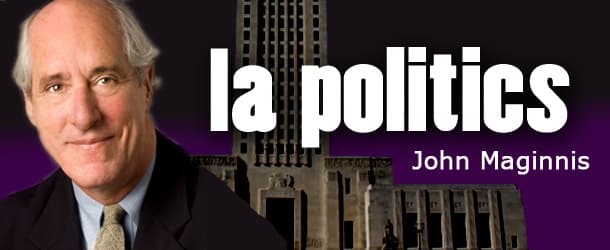From the time congressional Republicans first targeted Sen. Mary Landrieu as the key to that party’s takeover of the Senate, their strategy has been to frame the 2014 election around major national issues on which the Democrats’ positions are out of step with red state Louisiana.
The only problem with the plan to link her support to what the president and the Senate majority are doing is that they haven’t done anything in almost four years. And should defeating Landrieu enable Republicans to gain control of the upper chamber, prospects for turning their ideas into laws are very slim anyway.
Historically, the final mid-term election of a president’s second term is a downer for his party, as voters put the brakes on the administration’s initiatives. Yet, Republicans, riding the tea party wave, did that already in 2010.
With Republicans controlling the House and Democrats the Senate, and bipartisanship absent in both chambers, neither party stands to get its major legislation passed. With the American public seeing partisan gridlock as the operative condition of Washington, D.C., for the foreseeable future, the stakes and interest in the coming Senate races are lowered.
If Republicans run the table and turn six Senate seats for a majority of 51, the impact would be huge on committee chairmanships and office space, but slight in terms of legislation as long as the filibuster rule requires 60 votes to pass anything controversial.
That could change fast if Senate Majority Leader Harry Reid follows through with his proposal to revise the rule to require only a simple majority to pass a bill or confirm a presidential appointment. In the past, the party in charge has held back from exercising the so-called “nuclear option” for fear of the scorched earth that would follow with every change in power. If the Democrats push that button now, confirmations could flow through the Senate, but administration bills would still die in the House.
Given voters’ sky-high frustration with Congress, 2014 would seem a fine time for a Republican outsider to challenge Landrieu. Instead, for the first time in four attempts to beat the Democrat, the Republicans’ leading candidate is a congressman, U.S. Rep. Bill Cassidy of Baton Rouge. (Other House Republicans have run against her, but were eliminated in primaries.)
Cassidy fits the GOP’s strategic template of an experienced, well-versed official who can speak to the big national issues — whether immigration or taxation — that separate the congressional parties.
Republicans are confident that Landrieu’s 2010 vote for the Affordable Care Act will hurt her once the law takes effect next year. But it remains to be seen whether Cassidy’s opposition to the expansion of Medicaid, in line with Gov. Bobby Jindal’s hard-line position, doesn’t hurt him more with the middle-of-the-road voters he needs.
The larger problem for the congressman would be if, despite the GOP big thinkers, this race turns on who can do the most for Louisiana. On that score, Landrieu has a strong 17-year track record as evidenced by her support among parish officials, low-income residents and the business elite.
Cassidy scored a recent coup on the most pressing issue below I-10 — new federal flood insurance rates — when he attached an amendment to the Federal Emergency Management Agency funding bill to delay the sticker-shock increases. Landrieu was unable to do the same on the corresponding Senate bill. That puts her, as chairwoman of the subcommittee handling FEMA appropriations, in the awkward position of having to work the language of Cassidy’s amendment into the Senate bill.
Cassidy’s success with his amendment levels the playing field for him on Landrieu’s legislative turf. Should the rate increases be delayed, she can’t take sole credit for saving home ownership in south Louisiana. Yet she still would be instrumental in guiding the relief bill through the Senate and into law. It’s called bipartisan cooperation; it’s a rare phenomenon in Washington these days, but just what concerned Louisiana homeowners, Democrats and Republicans alike, need from this Congress.
There will be plenty of other issues and votes for the two opponents to cross swords on, but perhaps none that will have as much impact on ordinary lives. If the flood insurance rate increases are delayed and eventually scaled back, it would be fitting that the greatest good achieved this year by these two rivals gives neither bragging rights over the other.














Comments are closed.